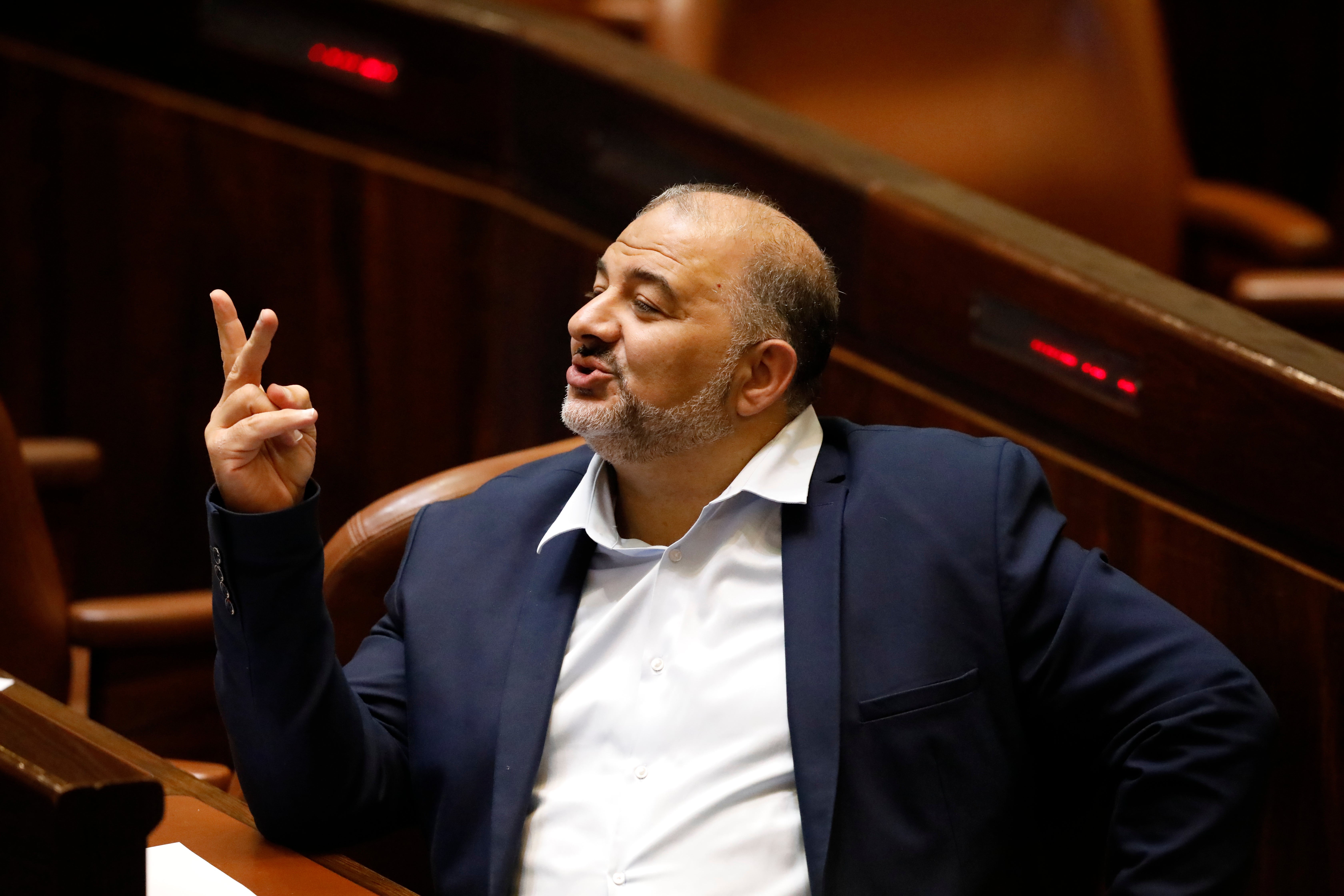Key Israeli governing partner Ra'am to remain in coalition
A key Israeli governing partner says it is remaining in the country’s fragile coalition

Your support helps us to tell the story
From reproductive rights to climate change to Big Tech, The Independent is on the ground when the story is developing. Whether it's investigating the financials of Elon Musk's pro-Trump PAC or producing our latest documentary, 'The A Word', which shines a light on the American women fighting for reproductive rights, we know how important it is to parse out the facts from the messaging.
At such a critical moment in US history, we need reporters on the ground. Your donation allows us to keep sending journalists to speak to both sides of the story.
The Independent is trusted by Americans across the entire political spectrum. And unlike many other quality news outlets, we choose not to lock Americans out of our reporting and analysis with paywalls. We believe quality journalism should be available to everyone, paid for by those who can afford it.
Your support makes all the difference.A key Israeli governing partner said Wednesday it was remaining in the country's fragile coalition, averting another crisis for the embattled government.
Mansour Abbas, the head of the Islamist Arab Ra'am party, said he would continue his party's membership in the coalition after suspending it following tensions at a key Jerusalem holy site in recent weeks.
“Ra'am decided to give an additional opportunity to the coalition and the government in order to move the wheels of decisions and implement them in a practical manner,” he told reporters in parliament, flanked by his three party members and speaking in Arabic.
Ra'am is one of eight parties that make up the country's ideologically disparate coalition, which runs the gamut from dovish factions to nationalist ones. Ra'am made history last year when it became the first party representing Arab citizens of Israel to join a coalition.
The parties were brought together over their opposition to former leader Benjamin Netanyahu and they have little else in common. While they agreed to put aside divisive issues such as Palestinian statehood to keep the coalition stable, the parties have frequently butted heads over their differences.
Weeks of Israeli-Palestinian violence, much of it fueled by tensions and fighting at Jerusalem’s most sensitive holy site, prompted Abbas to suspend cooperation.
The government could have continued on through minority rule without Ra'am's four seats if the party had bolted. But it would have struggled to pass legislation and needed to look for support from opposition lawmakers. It also would have fractured the coalition and opened the door for other disgruntled parties to leave.
Parliament reopened this week for its summer session as Prime Minister Naftali Bennett was fighting to keep his government afloat and his own party from crumbling.
Since he took office, Bennett's nationalist Yamina party has lost two members, most recently one last month, which left the coalition and opposition equally divided in the 120-seat parliament.